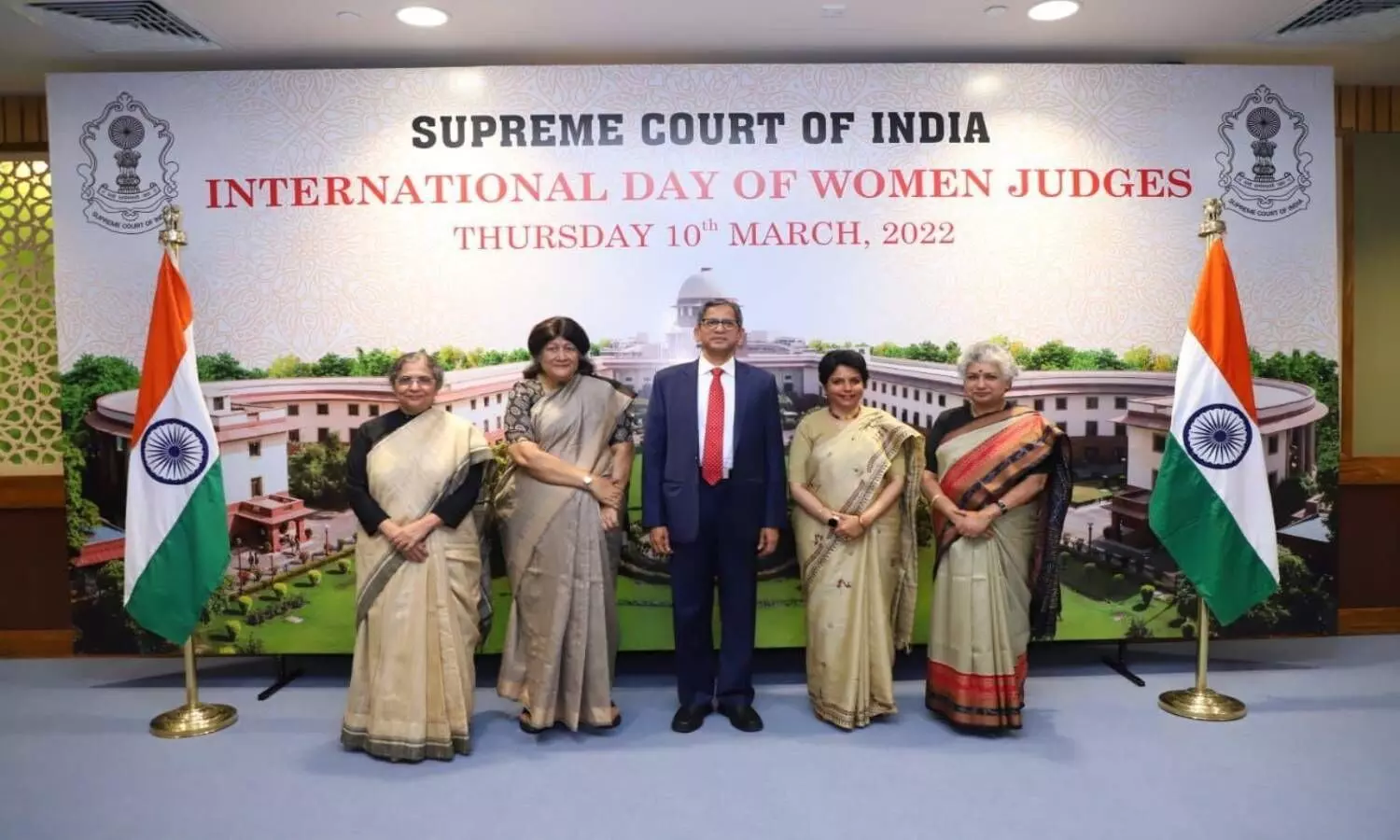March 10 has been declared as International Day of Women Judges. It is for the first time when UN General Assembly passed a resolution about this. For the first time, women justices of High Courts and Supreme Court celebrated International Day of Women Judges 2022 in India today online.
The Supreme Court of India hosted a special program on this occasion. UN General Assembly resolved this to recognize the jurisprudential contribution of women judges and to empower young women and girls who aspire to become judges and legal leaders.
World over, there are fewer women judges at the senior level. The UN strongly believes that the entry of more women in judicial institutions can help in proving that institutions are committed to the principles of peace and equality. If there is an increased number of women judges, the courts will be able to represent all the citizens and their concerns. It is also understood that the UN Sustainable Development Goals could be achieved through gender parity in the judicial services.
In a virtual event, Chief Justice of India, N V Ramana said: "A woman being a natural multi-tasker is bound to succeed in any given profession. But, if she is dependent on only a few personal briefs which come her way, her appearance before the courts is minimized. The bench will also not be in a position to recognize her. Hence, women should be given preference while making appointments as panel advocates which will pave their path to the bench".
He explained the reasons for this disparity. "There are numerous factors behind the under-representation of women in the judiciary. The primary reason is the deeply ingrained patriarchy in our society. Women often have to face a hostile atmosphere within the courtrooms. Harassment, lack of respect from members of the Bar and Bench, the silencing of their opinions, are some of the other traumatic experiences often recounted by many women lawyers. Resultantly, out of nearly 17 lakhs advocates registered in the country, only 15% are women. The absence of inclusivity in the thought process sustains this anomaly", he said.
"After I assumed the office of Chief Justice of India, we have so far filled 9 vacancies in the Supreme Court out of which 3 vacancies were filled with women...For the High Courts, we have recommended so far 192 candidates. Out of these, 37, that is 19% were women. This is certainly an improvement over the percentage of incumbent women judges in High Courts which stands at 11.8%", he said."Unfortunately, so far only 17 of the 37 women recommended to High Courts were appointed. Others are still pending with the Government", he added.
There are 703 judges in 25 High Courts in our country, but only 83 of them are woman judges. Since the inception of the Supreme Court in 1950, there have been only 11 women judges so far. Of them, only two judges have reached the collegium, which selects the judges. Out of 25 High Courts, in 11 HCs the woman judges are less than 2-woman judges. This works out to 11.8 percent. In 1991, the first woman was appointed Chief Justice of a High Court. But now there are no woman Chief Justices at all. However, at this point, there are four-woman judges at the apex court, which highest ever so far.
1. Justice Indira Banerjee, who was elevated in 2018. She is the 8th SC woman judge.
2. Justice Hima Kohli was the first woman Chief Justice of Telangana High Court, who was recently elevated to SC in 2021.
3. Justice B V Nagaratna, will become the first-ever woman Chief Justice of India on September 25, 2027, though only for 36 days.
4. Justice B M Trivedi was the judge of Gujarat High Court for 5 years before she was elevated to Supreme Court in August 2021.
If Gender Disparity in Judiciary is not addressed by the Judges and Union at the apex courts themselves, is it possible to bring gender equality?
